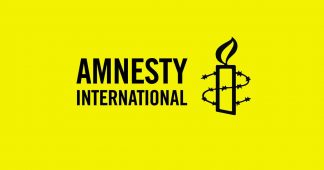Israeli parliament passes apartheid-style “Nation-State” law
By Bill Van Auken
20 July 2018
The Israeli parliament, the Knesset, Thursday passed a so-called “Nation-State” law that enshrines the de facto apartheid-style discrimination and segregation practiced against the country’s Palestinian citizens in a quasi-constitutional Basic Law.
Backed by Israeli Prime Minister Benjamin Netanyahu and his right-wing ruling coalition, the law passed by a vote of 62 to 55, with two abstentions.
Palestinian legislators, who tore up copies of the law and shouted out protests that it was an act of racism and apartheid, were forcibly evicted from the Knesset.
After the law’s passage, Netanyahu called it “a pivotal moment in the annals of Zionism and the State of Israel.”
The legislation has been a hobby horse of the Zionist right for at least half a decade. Netanyahu mounted an aggressive campaign to get it passed before the end of the Knesset’s current session, as a means of shoring up support among his rabidly nationalist base in advance of November elections, and distracting from Israel’s deepening social crisis and the multiple corruption scandals implicating him and his wife Sara.
On a more fundamental level, the legislation constitutes a warning that the Israeli state is rapidly dispensing with any pretense of commitment to democracy or equal rights and is preparing to carry out massive crimes against the Palestinian people, even as it steps up its open preparations for a military confrontation with Iran.
Several thousand Israelis marched through the main streets of Tel Aviv on Saturday night to express their opposition to the reactionary “Nation-State” law.
The law restricts nationality rights to Israel’s Jewish as opposed to Palestinian citizens. It states that “The right to exercise national self-determination in the State of Israel is unique to the Jewish people.” It goes on to declare Jerusalem “complete and united” as Israel’s capital and it strips Arabic of its status as an official state language, granting this status to Hebrew alone.
It also includes a clause stating, “The state views the development of Jewish settlement as a national value and will act to encourage and promote its establishment and consolidation.”
Other elements include endorsement of boilerplate symbols of nationalism, from the Israeli flag to the national anthem and the Menorah.
Nowhere does the document affirm equal rights for all citizens, nor, for that matter, make any reference to non-Jewish citizens of Israel—the overwhelming majority of them Palestinians, along with Druze, Bedouin and some Russians—who number some 1.8 million, or approximately 20 percent of the population.
An earlier version of the legislation had explicitly endorsed the creation of “exclusive” Jewish-only communities and instructed the Israeli courts to rule according to Jewish ritual law in cases where there existed no legal precedent.
This was then replaced, under pressure from some of Netanyahu’s allies, by the somewhat vaguer reference to the “development of Jewish settlement as a national value.” In practical terms it retains the same meaning, backing the creation, with state support, of Jewish-only communities within Israel, just as in the occupied West Bank, through the isolation and expulsion of Palestinians.
Even without enshrining this form of apartheid in Basic Law, the reality is that before the legislation was passed, over 900 places in Israel—approximately three-quarters of all townships in the country—already have excluded non-Jews from living within their municipal borders. Palestinians are relegated to poorer areas which are systematically denied equal access to basic services, education, health and housing.
Hassan Jabareen, the general director of the Adalah Legal Center for Arab Minority Rights in Israel issued a statement after the passage of the legislation, declaring: “The Jewish Nation-State Law features key elements of apartheid, which is not only immoral but also absolutely prohibited under international law. The new law constitutionally enshrines the identity of Israel as the nation-state of the Jewish people only—despite the 1.5 million Palestinian citizens of the state and residents of East Jerusalem and the Golan Heights—and guarantees the exclusive ethnic-religious character of Israel as Jewish. By defining sovereignty and democratic self-rule as belonging solely to the Jewish people—wherever they live around the world—Israel has made discrimination a constitutional value and has professed its commitment to favoring Jewish supremacy as the bedrock of its institutions.”
Among those voicing opposition to the legislation was Israeli President Reuven Rivlin, who rarely intervenes in political debates. He warned that the law could discredit Israel and “be used as a weapon by our enemies.” His concern is that it makes explicit in law the abuses that are already taking place in practice.
Expressing the virulent racism of the measure’s Likud supporters, Knesset member Miki Zohar responded: “Unfortunately President Rivlin has lost it,” adding that he had “forgotten his DNA.”
The spinelessness of Netanyahu’s parliamentary opposition was summed up by Labor Party leader Isaac Herzog, who told the Knesset: “The question is whether the law will harm or benefit Israel. History will determine. I really hope that we won’t find the fine balance between a Jewish and democratic state to be hurt.”
In a measure of how far Israeli politics have shifted to the right, Likud member Benny Begin, the son of Menachem Begin, leader of the Zionist terrorist group Irgun, founder of Likud, and the prime minister who bombed Iraq and invaded Lebanon, was one of the two abstentions. He warned that opposing the nation-state to equal rights created conditions for the growth of extreme nationalism and social tensions.
American Zionist organizations also expressed trepidation about the law’s passage. The American Jewish Committee issued a statement declaring that the law “put at risk the commitment of Israel’s founders to build a country that is both Jewish and democratic.” Another US pro-Israel group said that the law created “barriers” and “challenges” in countering demands for sanctions against Israel.
The turn toward implementing apartheid-style law is being taken under conditions in which the Israel Defense Forces has concluded that the combined Palestinian population of Israel, East Jerusalem, the West Bank and Syria’s Golan Heights is already equal to Israel’s Jewish population. Other sources estimate that Israel and the occupied territories, taken as a unit, will have a Palestinian majority as soon as 2020.
This demographic reality has long posed the impossibility of maintaining an Israel that is both a Jewish and a democratic state. The “Nation-State Law” makes clear that the path being chosen is to dispense with the pretense of democracy and equal rights and to embark on a renewed campaign of massive ethnic cleansing.
Netanyahu’s government has been emboldened to take such measures by the unconditional support granted by the Trump administration, which, in violation of international law and longstanding US policy, recognized Jerusalem as Israel’s capital and moved the American embassy there in May.
Washington has sought to forge an anti-Iranian axis with Israel, Saudi Arabia and the other Persian Gulf oil monarchies. It has backed Israel’s military assault on the people of Gaza, which has seen the heaviest bombing since 2014 even as the IDF shot to death at least 138 unarmed protesters and wounded at least 15,000 on the Gaza-Israel border.
The passage of the bill came on the same day that Israeli demonstrators holding signs reading “Never again” and “Shame on you” confronted Hungarian Prime Minister Viktor Orban outside the Yad Vashem Holocaust memorial. The protesters condemned Orban, with whom Netanyahu has established close relations, for his open appeals to anti-Semitism and his embrace of the World War II-era dictator Admiral Milos Horthy, who collaborated with the Nazis in the extermination of Hungarian Jews.
The alliance between Orban and Netanyahu is founded not merely on the Hungarian government’s support for Israel, but on a common outlook of right-wing nationalism. Zionism itself had its origins as a peculiar expression of the retrograde ethno-nationalism that emerged in eastern Europe in the latter part of the 19th century, which was based not on universal democratic principles, but rather on exclusivist conceptions of racial, religious and linguistic hegemony in a region marked by ethnic and linguistic diversity. Ironically, a movement that claimed to stand for the liberation of Jews found substantial common ground with anti-Semites and right-wing nationalist precursors of German fascism.
The return by Israel’s Zionist state to these reactionary foundations is part of a broader international trend that has seen the rise of right-wing, xenophobic and anti-immigrant governments and parties in Europe and elsewhere.
The inevitable result will be an explosion of social struggles. Neither Palestinian nor Jewish working people have any national way forward. In the end, an exclusively Jewish state of Israel will prove no more viable than the Bantustan-style mini-state proposed for Palestinians under the moribund “two-state solution.”
The only solution to the malignant contradictions of Israeli society lies in uniting Arab and Jewish workers across all national boundaries in a common struggle against capitalism and for a Socialist Federation of the Middle East.











